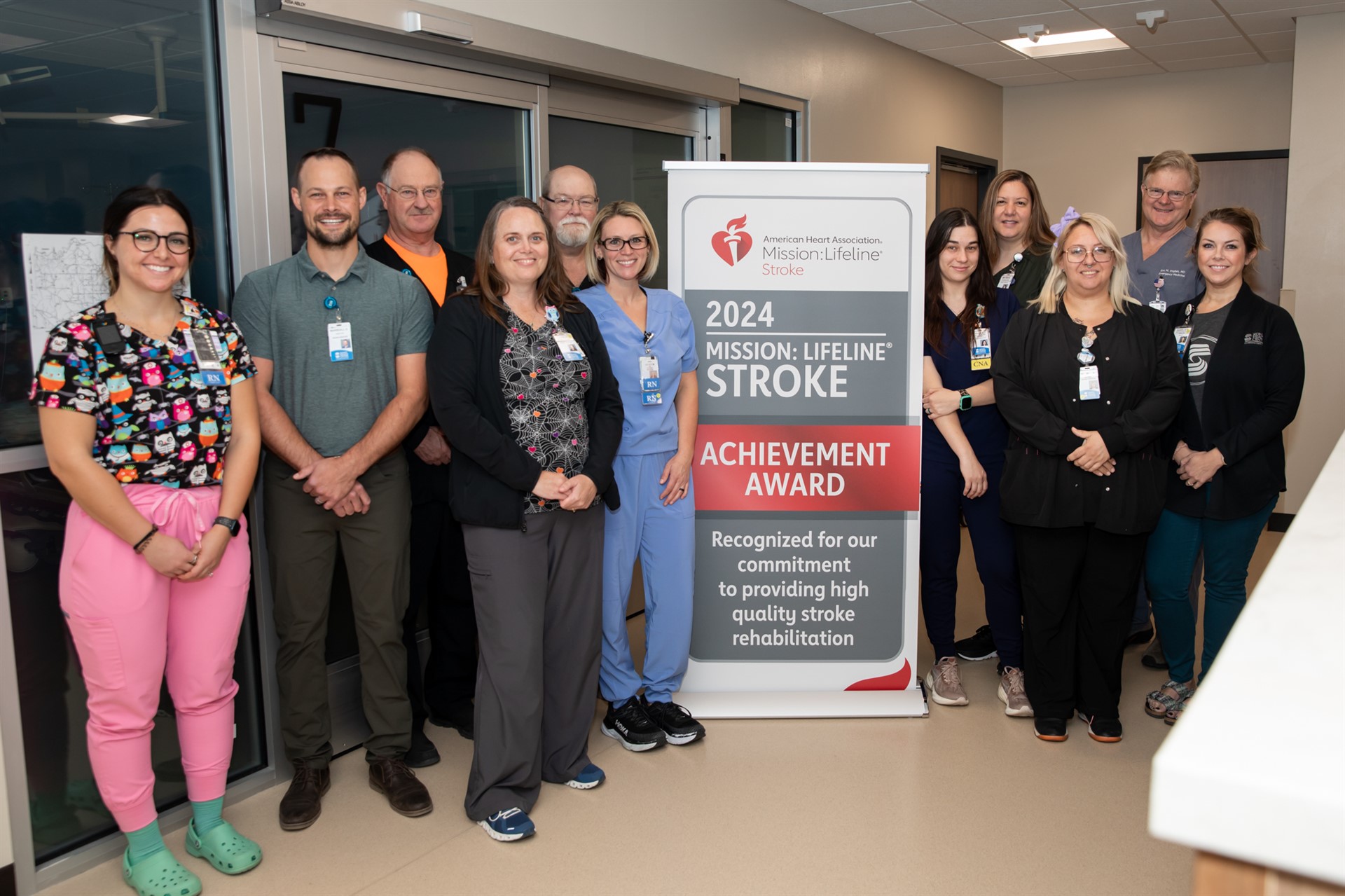Sidney Health Center receives certificate of achievement for post-acute care for stroke patients
October 10, 2024
 Sidney Health Center has received a certificate of achievement for its participation in the American Heart Association’s Mission: Lifeline Stroke post-acute care initiative to enhance guideline-based care for stroke patients, ultimately improving and prolonging lives.
Sidney Health Center has received a certificate of achievement for its participation in the American Heart Association’s Mission: Lifeline Stroke post-acute care initiative to enhance guideline-based care for stroke patients, ultimately improving and prolonging lives.Stroke is a leading cause of serious long-term disability in the U.S. and approximately 795,000 people each year experience a new or recurrent stroke, according to the American Heart Association’s 2023 statistical update. Participation in the American Heart Association’s post-acute care initiative can help facilities support faster and more effective recovery from stroke through standardized coordination, adherence and implementation of evidence-based care.
Certificate of achievement recipients have committed to establishing a stroke-specific rehab program, providing stroke education to all staff members, implementing evidence-based protocols and policies, and continuous quality improvement.
Evidence-based rehabilitation and secondary prevention interventions improve recovery after stroke and reduce secondary complications. However, stroke rehabilitation expertise, processes of care, and educational resources vary among sites where post-acute care is delivered. The American Heart Association, the world’s leading nonprofit organization focused on heart and brain health for all, developed quality standards based on the Association’s 2016 Guidelines for Adult Stroke Rehabilitation and Recovery to address these gaps.
The post-acute care initiative provides a framework for assisting facilities to improve care according to the American Heart Association’s rigorous science-based requirements for stroke rehabilitation, including program management, patient and caregiver education and support, care coordination, clinical management and quality improvement.
“Participation in this program benefits the patient and the facility by standardizing care practices,” said Jennifer Doty, CEO. “When there are evidence-based processes during every phase of care, patients have the best opportunity for positive outcomes. This initiative helps patients and their loved ones know participating facilities follow these important best practices.”
Facilities participating in the post-acute care initiative receive a participation stipend and site-specific quality improvement support and process improvement ideas surrounding quality standards for stroke recovery, rehabilitation and secondary prevention. Facilities also have the opportunity to be part of a learning collaborative, working with experts in stroke rehabilitation to build tools and share and create best practices. Participation improves collaboration between post-acute care facilities and others involved in stroke care, including hospitals and outpatient providers.
“Sidney Health Center is committed to improving patient care by adhering to the latest guidelines,” Pam McGlothlin, Senior Executive Nursing Services. “The post-acute care initiative makes it easier for our teams to put proven knowledge and guidelines to work on a daily basis, which studies show can help patients recover better. The end goal is to ensure more people in the MonDak Region can experience longer, healthier lives.”
This work builds on the Mission: Lifeline Stroke Montana initiative launched in 2020. The goal of Mission: Lifeline stroke is to bring together hospitals, emergency medical services and first responders, rehabilitation facilities, communications and regulatory agencies, state and local government, and payers to forge a proactive system of stroke care that saves and improves lives.
